Narrator is a screen-reading app built into Windows 10. Narrator lets users with vision issues to use PC and complete common tasks. Here is how to customize its keyboard shortcuts.
Advertisеment
Microsoft describes the Narrator feature as follows:
Narrator lets you use your PC without a display or mouse to complete common tasks if you’re blind or have low vision. It reads and interacts with things on the screen, like text and buttons. Use Narrator to read and write email, browse the Internet, and work with documents.
Specific commands let you navigate Windows, the web, and apps, as well as get info about the area of the PC you're in. Navigation is available using headings, links, landmarks, and more. You can read text (including punctuation) by page, paragraph, line, word, and character as well as determine characteristics like font and text color. Efficiently review tables with row and column navigation.
Narrator also has a navigation and reading mode called Scan Mode. Use it to get around Windows 10 using just the up and down arrows on your keyboard. You can also use a braille display to navigate your PC and read text.
Narrator keyboard commands
You can choose what modifier key you want to use in Narrator commands. Both the Caps lock and Insert keys serve as your Narrator key by default. You can use either of these keys in any command that uses the Narrator key. The Narrator key is referred to as simply “Narrator” in commands. You can change your Narrator key in Narrator settings (Win + Ctrl + N).
Narrator has two possible keyboard layouts: Standard and Legacy. Commands for each can be found HERE.
Change Narrator Keyboard Shortcuts in Windows 10
- Open the Settings app.
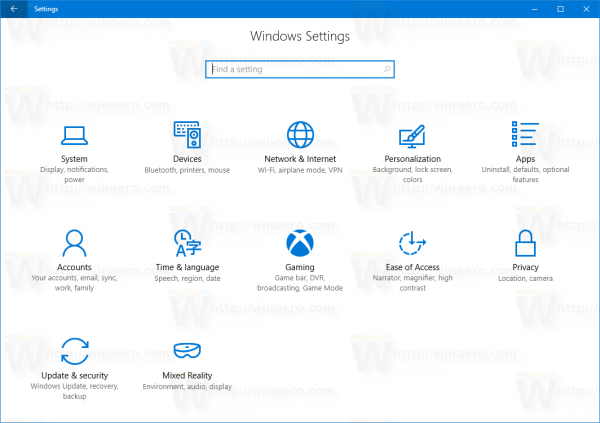
- Go to Ease of Access -> Narrator.
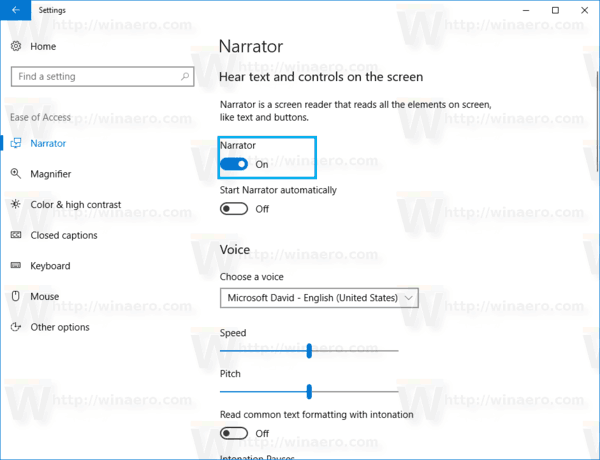
- On the right, enable Narrator.
- Click on the Narrator app in the taskbar.

- In Narrator, click on Commands.
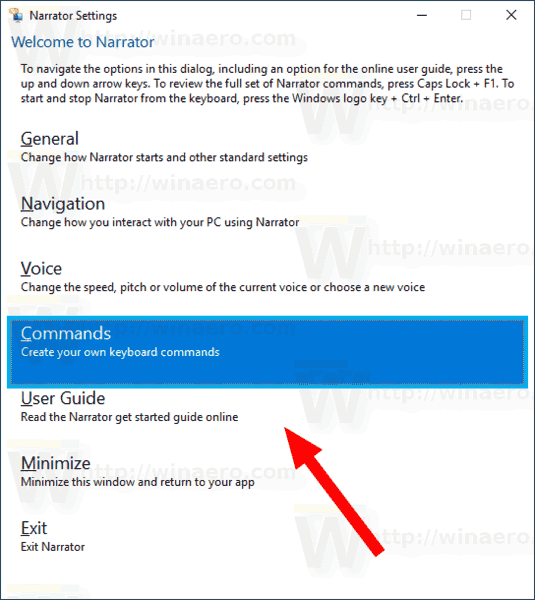
- Select a command you want to customize in the list of commands, then click on the button Change command keyboard shortcut.
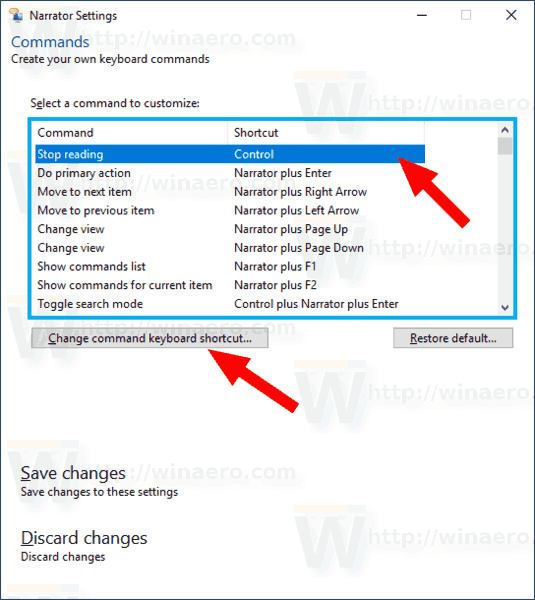
- In the next dialog, press the the keyboard sequence you want to use for the selected command.
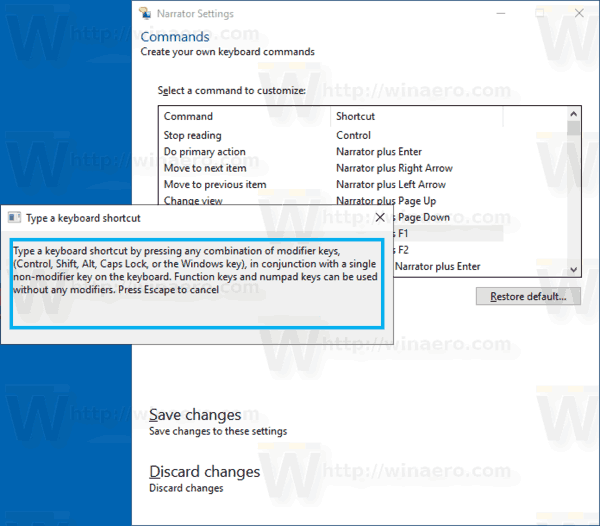
- Click on Save changes.
You are done.
Note: Use the button Restore default... to restore the default keyboard shortcut for the selected command.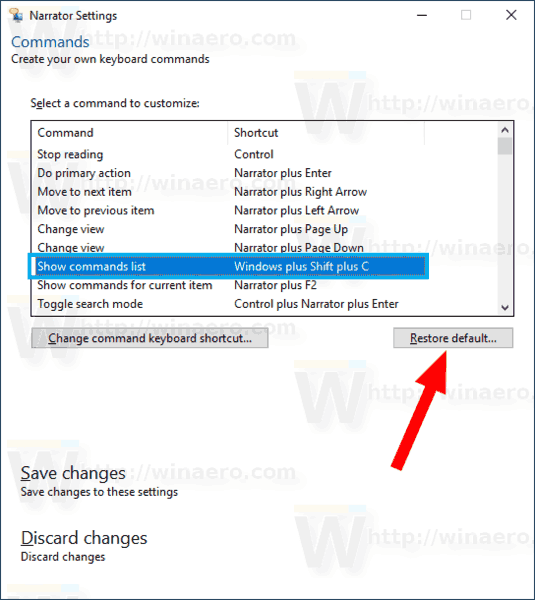
That's it.
Support us
Winaero greatly relies on your support. You can help the site keep bringing you interesting and useful content and software by using these options:
